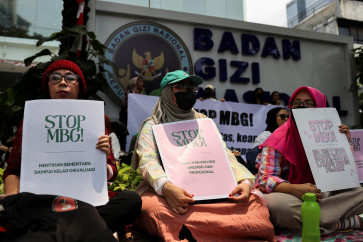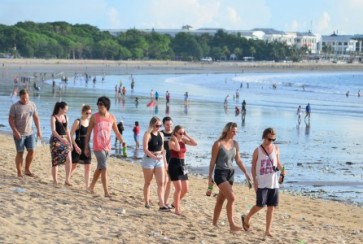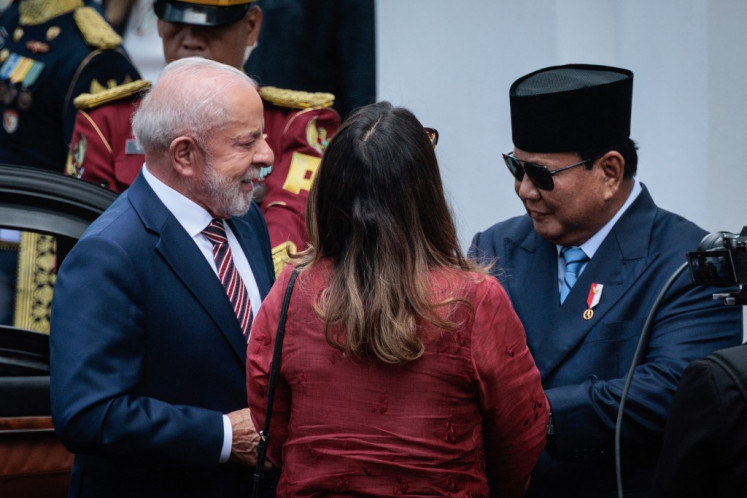Popular Reads
Top Results
Can't find what you're looking for?
View all search resultsPopular Reads
Top Results
Can't find what you're looking for?
View all search resultsASEAN must boost energy security to keep growth
European economies might be bleeding, and the US might be facing its worst crisis since the Great Depression, but Asian as well as ASEAN countries are tracking a positive trajectory and are poised to outpace the rest of the world in the coming years
Change text size
Gift Premium Articles
to Anyone
E
uropean economies might be bleeding, and the US might be facing its worst crisis since the Great Depression, but Asian as well as ASEAN countries are tracking a positive trajectory and are poised to outpace the rest of the world in the coming years.
“ASEAN is well-positioned to ride this rising tide,” Singapore’s Second Minister for Home Affairs, Trade and Industry S. Iswaran said in his keynote address at the 4th ASEAN and Asia Forum (AAF) recently.
According to Iswaran, energy is a vital part of the rising ASEAN as well as Asian economies, but the region is not well-prepared to face the growing energy demand.
“We must, therefore, work together to ensure that energy does not become a limiting factor in ASEAN’s growth,” the minister said.
That’s why the governments should prioritize exploring energy sources, such as new renewable technologies and conventional fossil fuels to meet the future energy demand, say a majority of business executives, scholars, officials and energy experts in a survey conducted at the AAF.
The main aim of the AAF, which was held by the Singapore Institute of International Affairs (SIIA), was to focus on the three Es — economy, energy and environment — in the region.
According to the survey, 84 percent of respondents felt that ASEAN governments must prioritize conventional fossil fuels (oil, gas and coal), renewable energy and biofuels in their energy plans.
The Southeast Asian region has plenty of coal, hydrocarbon and geothermal reserves. It also has a large potential for hydro power, wind power and other forms of renewable energy sources.
Most of the respondents strongly urged ASEAN countries to put aside their future nuclear programs.
Frequent natural disasters, safety concerns and negative environmental impacts were the reasons mentioned by respondents for this argument.
“If less risky sources are available, why go there?” Indonesia’s executive director of the Centre for Strategic and International Studies (CSIS), Rizal Sukma, asked at the AAF.
“Why not explore safer sources of energy?”
There is a need for regional energy cooperation to boost energy security and the competitiveness of ASEAN economies. In this process, the regional governments have to take into consideration the environmental impact also, AAF participants said.
“Economy, energy and the environment are locked together in a dangerous triangle,” SIIA chairman Simon Tay said.
ASEAN governments, participants of the AAF said, must invest in building trans ASEAN gas pipelines and an ASEAN power grid. They can also get better terms for buying LNG from global sources through the regional energy connectivity. ASEAN countries can boost energy security in the region.










